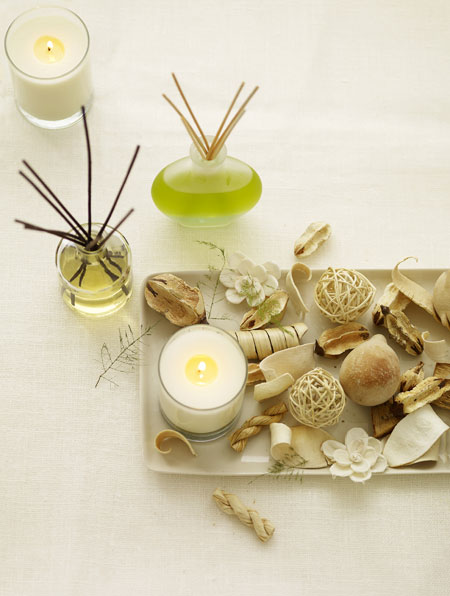What does paradise smell like?
Updated: 2013-10-11 23:47
(China Daily)
|
||||||||
 |
|
Westin uses white tea as a part of its "Sensory Welcome Program". |
It is that subtle signature that snds out signals that you are about to sit in the lap of luxury, and the first volley fired in a full sensory attack. Xu Junqian looks at the lengths some hotels go to, to capture your imagination and loyalty.
The fictional Shangri-La created by English author James Hilton in his 1933 novel Lost Horizon is described as a valley of serenity, myth and harmony. Under his pen, images of paradise come alive with rippling brooks, verdant foothills, hanging balconies of green and flowering gardens.
But have you ever imagined how it would smell like?
Perhaps its perfume would have bottom notes of vanilla, sandal and musk, highlighted by layered scents of light bergamot and tea spiced with ginger. At least, this is how Shangri-La Hotels and Resorts imagine it to be, having already taken the name from Hilton’s famous refuge.
After meticulously designing the lighting, music, and decor to create an inviting ambience in their lobbies, luxury hotels are utilizing the subtlest human sense to distinguish themselves in the competitive hospitality industry. They are luring guests with signature scents.
In 2006, Shangri-La Hotels and Resorts was the first to introduce an exclusive signature scent to its lobbies around the world. It took six months for the company to create "Essence of Shangri-La".
According to the hotel, this refreshing and subtly Asian scent calls forth the feelings of serenity and calm.
"We want all our guests to feel that they have arrived at a safe and comforting haven, as soon as they walk through our doors," the company says, that "adds another sensory layer of welcome". The "safe, non-allergic" water-based fragrance is dispersed by an atomization system featuring anti-bacterial and anti-smoke functions.
After Shangri-La’s launch, other hotels, too, launched signature scents almost simultaneously. What marketing strategists call "successful scent branding" has become wildly popular, even in China, a country where the universal use of perfume for both men and women is still a relatively new idea. In the past, natural scents such as flowers were used.
A number of hotels, whether large international groups or boutique establishments, has gone on to introduce their own olfactory logos, used to reinforce loyalty and that widely pursued sense of "home away from home" among guests.
Starwood Hotels and Resorts, for example, applied scent branding to almost every level of its hotel brands.
The modern, hip and luxury boutique brand, W Hotels, offers "Bling", a special aroma aimed to appeal to the younger jetsetters. Westin goes for white tea as a part of its "Sensory Welcome Program".

 Victoria Beckham S/S 2014 presented during NYFW
Victoria Beckham S/S 2014 presented during NYFW
 'Despicable' minions upset Depp's 'Lone Ranger' at box office
'Despicable' minions upset Depp's 'Lone Ranger' at box office
 'Taken 2' grabs movie box office crown
'Taken 2' grabs movie box office crown
 Rihanna's 'Diamonds' tops UK pop chart
Rihanna's 'Diamonds' tops UK pop chart
 Fans get look at vintage Rolling Stones
Fans get look at vintage Rolling Stones
 Celebrities attend Power of Women event
Celebrities attend Power of Women event
 Ang Lee breaks 'every rule' to make unlikely new Life of Pi film
Ang Lee breaks 'every rule' to make unlikely new Life of Pi film
 Rihanna almost thrown out of nightclub
Rihanna almost thrown out of nightclub
Most Viewed
Editor's Picks

|

|

|

|

|

|
Today's Top News
Opportunity knocks for US businesses
KFC needs new faces, not new ad campaign
China's growth rate to exceed 7.5%
US woos Malaysia in TPP talks
Nobel literature winner's work snubbed in China
Trending news across China on Oct 11
Xi ignites Australia's zeal for FTA deal
Fire at Fukuoka hospital leaves 10 dead
US Weekly

|

|







